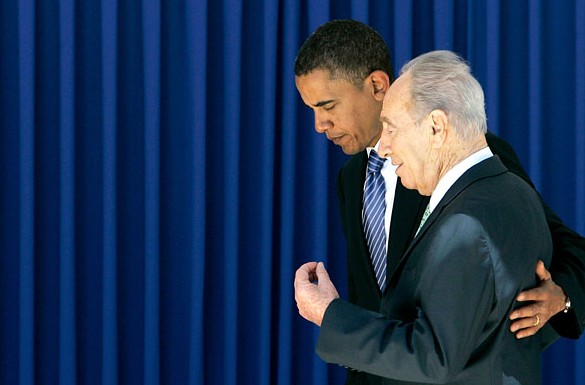Approval of Obama on Afghan war dives
Public approval of President Obama’s handling of the war in Afghanistan has plummeted, a USA TODAY/Gallup Poll finds, amid rising pessimism about the course of the conflict.
The nation is divided over what to do next: Nearly half of those surveyed endorse deploying thousands of additional U.S. troops, while four in 10 say it’s time to begin withdrawing forces. [continued…]
The proponents of Coin – or “Coinistas”, as they have come to be known – point to the success of the 2007 US military “surge” in troop numbers in Iraq under the leadership of General David Petraeus, which they credit with reducing the levels of violence and insurgency across the country.
It is this “surge narrative” that has emboldened the Coinistas, but traditionalists, such as Colonel Gian Gentile, director of the military history programme at the US Military Academy at West Point, remain unconvinced.
The dramatic drop in violence in Iraq was the result of “a decision by senior American leaders in 2007 to pay large amounts of money to Sunni insurgents to stop attacking Americans and join the fight against al-Qaeda”, says Gentile, who remains an outspoken critic of Coin despite being an active-duty officer. “Coupled with this was the decision by the Shia militia leader Moqtada al-Sadr to refrain from attacking coalition forces.”
Gentile, who commanded a cavalry squadron in west Baghdad before the surge, says his “fundamental mission was to protect the people” and the “overall methods that the US army employed at the small-unit level where [he] operated were no different from the so-called new counter-insurgency methods used today”.
Aside from the Iraq surge, Coinistas also point to earlier examples from history where counter-insurgency methods seem to have succeeded – in particular, the British colonial experience in Malaya (now Malaysia) between 1948 and 1960.
“Malaya is the ‘gold standard’ for Coin,” says the historian Michael Vlahos, a member of the national security assessment team at Johns Hopkins University. But, he argues, this is a mistaken view: the Chinese Communist insurgents were a tiny and unpopular outside movement removed from the population, the British had a close and credible relationship with the ruling princes, and the local people were politically passive. And, it should be noted, it still took the British a dozen years to prevail. [continued…]
Merkel under fire as general resigns over Kunduz massacre
The head of Germany’s armed forces has resigned over allegations of a military cover-up following a Nato air strike in Afghanistan that killed dozens of civilians. General Wolfgang Schneiderhan’s resignation caps a deeply embarrassing episode for Chancellor Angela Merkel and her government over the country’s policy in Afghanistan.
The 4 September bombing of two oil tankers in the northern Afghan town of Kunduz caused carnage, and was the deadliest incident involving German troops since the Second World War. At first the German Nato forces, which had ordered the attack, claimed that all those killed in the incident were insurgents, although later the government in Berlin expressed regrets if innocent people had been among the victims.
Yesterday General Schneiderhan, the highest ranking official in the Germany armed forces, asked to be relieved of his duties for failing to pass on crucial information to ministers. Peter Wichert, a deputy defence minister who was in office at the time of the attack also stepped down. The resignations came after Bild newspaper published photographs from a secret army video indicating that civilian deaths were known about even as the then defence minister, Franz Josef Jung, was insisting that there was no evidence to show anyone but Taliban fighters had died. [continued…]
Taliban leader says U.S. faces defeat in Afghanistan
As President Obama prepares to unveil his long-deliberated war strategy, the Taliban’s supreme commander declared Wednesday that U.S.-led forces would find only defeat, dishonor and “a bed of thorns” in Afghanistan.
The statement came as the White House announced that Obama will deliver a televised speech about the war Tuesday from the U.S. Military Academy at West Point. He is expected to announce higher troop levels for Afghanistan and detail a plan for ultimately withdrawing U.S. forces. [continued…]
Pakistan Taliban regrouping outside Waziristan
Since the Pakistani army launched a long-awaited offensive last month to destroy the Taliban in South Waziristan, many militants have fled to nearby districts and begun to establish new strongholds, a strategy that suggests they will regroup and remain a potent threat to the country’s weak, U.S.-backed government.
Pakistani Taliban militants have escaped primarily to Kurram and Orakzai, districts outside the battle zone but still within Pakistan’s largely ungoverned tribal areas along the Afghan border, villagers there say. The military lacks a significant presence in much of these areas, making them an ideal environment for the Islamic militants to regroup.
Newly arrived militants have terrorized Pashtun residents and replenished their coffers through kidnappings and robberies, villagers said during interviews in the Kurram and Orakzai districts. With AK-47s and rocket launchers slung over their shoulders, the militants have begun patrols through the new territory and have set up checkpoints. [continued…]

